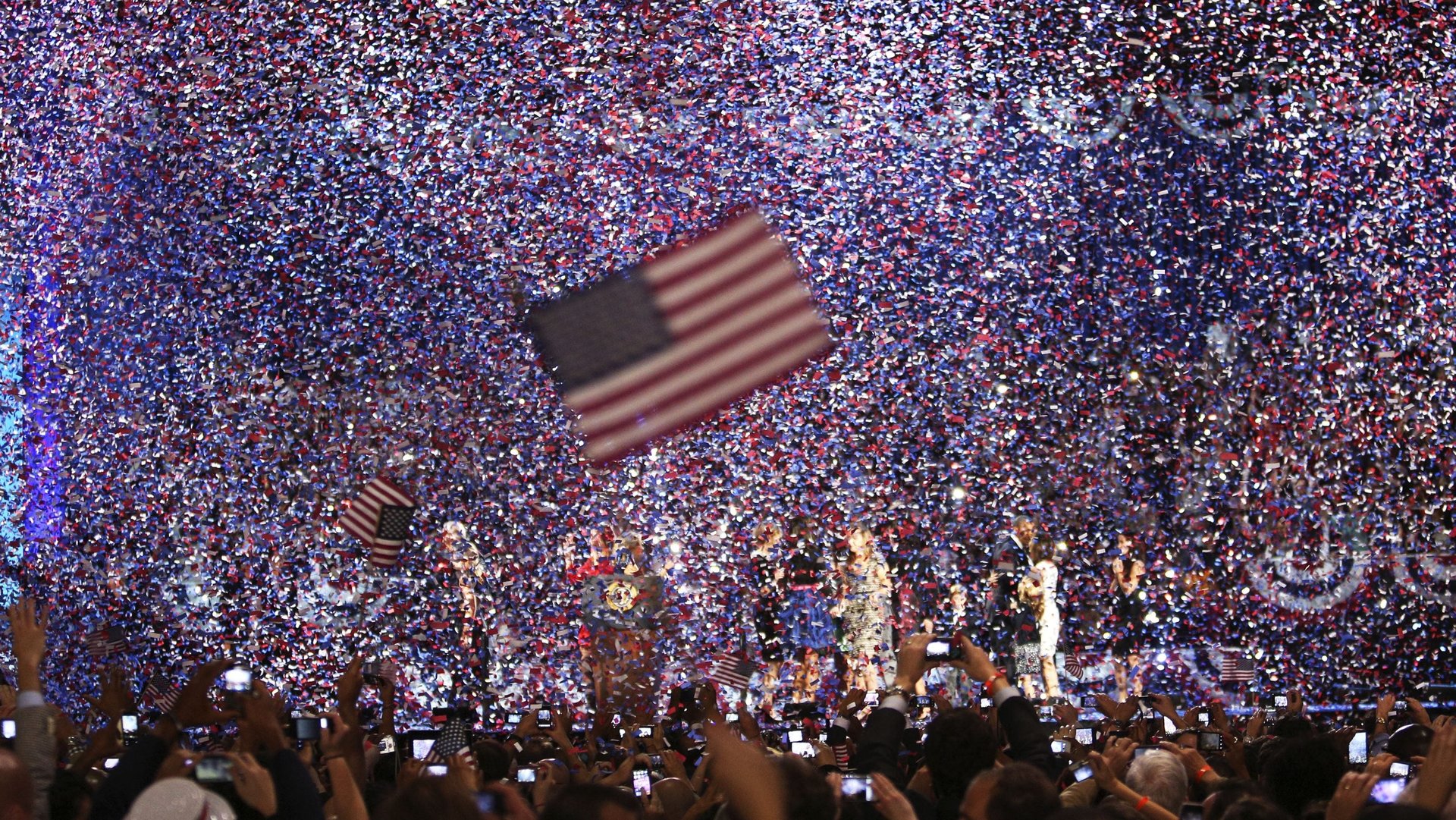Psychologists proved their value to political campaigns with one fundraising trick
In the last decade, psychological advisors have gone from an oddity to standard feature of major political campaigns. Back in 2008, when Barack Obama turned to a group of behavioral scientists to help him win the United States presidential election, their worth was yet unproven.


In the last decade, psychological advisors have gone from an oddity to standard feature of major political campaigns. Back in 2008, when Barack Obama turned to a group of behavioral scientists to help him win the United States presidential election, their worth was yet unproven.
Little is known about the academic group, who were unpaid and rarely give interviews on their political work. But according to the New York Times, they included Princeton University’s Susan Fiske, University of Chicago’s Richard Thaler (who won the Nobel in 2017 for his work in behavioral economics), emeritus Arizona State University professor Robert Cialdini, and Michael Morris, a psychology and leadership professor at Columbia University.
Morris, who worked with Obama in both 2008 and 2012, said there was initially some hesitancy from the campaign about whether academic input was of much use. But, he recalls, one piece of advice helped change that opinion.
It started with a simple psychological insight. “Our minds are not good at understanding probability,” said Morris, in a Quartz interview in February. Just take the lottery: “It’s a well documented phenomenon of human decision making that people overpay for lotteries.”
Say there’s a lottery with one in 10,000 odds of winning, versus a game with a one in a million chance of hitting the jackpot. Though the odds are a hundred times worse in the second situation, most people will happily buy a ticket for either one. We know the odds aren’t good, but we still have one shot.
“It’s like our inner likelihood meter doesn’t really go lower than a certain point (say 1/100) so everything rare gets weighted about that level,” Morris explained in an email last week. “If offered a choice between .5 chance of $5,000 or a certain $2,500, the vast majority of people would take the certain 2,500,” he added. “However, people typically prefer a 0.001 chance of $5,000 to a certain $5, which indicates that they overestimate the low probability.”
Based on this psychological phenomenon, the behavioral science team suggested Obama should fundraise by offering the chance for one donor to win dinner with the Obamas, according to Morris. With an email list in the millions, the odds of winning for any one person would be tiny, but most people would struggle to fully appreciate that. “As soon as you have mentally pictured having dinner with Obama, then the event is mentally accessible to you and you give it a likelihood that’s higher than its real probability,” Morris said in an email. There was no massive barrier to entry; a 2012 New Yorker article on one such Obama raffle reported the suggested donation was just $3.
A 2009 Time article reported members of Obama’s campaign loved having access to peer-reviewed research to support proposals such as the fundraising raffle. “It was amazing to have these bullet points telling us what to do and the science behind it,” Obama’s deputy field director Mike Moffo told TIME. “These guys really know what makes people tick.”
It was a success, said Morris. The Obama campaign repeatedly used this method to fundraise. Although the campaign didn’t release specifics on fundraising per tactic, the method keeps with the 2008 campaign’s focus on small donations: In February 2008, the Obama campaign had raised $28 million online, according to the New York Times, 40% of which came from donors who gave $25 or less.
Science is no guarantee; academics helped Hillary Clinton in her unsuccessful 2016 bid for presidency. Despite their research on how women are evaluated differently than men, it wasn’t enough to help her win the vote. But with ever-more money flowing into political campaigns, it’s increasingly common for presidential candidates to turn to psychologists for advice. Now that behavioral scientists have proven their political worth, a competitive candidate is unlikely to go without.